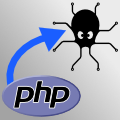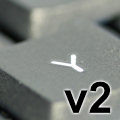Web page, Yocto-Visualization, and actuators
![]() One of the limitations of Yocto-Visualization is that only sensors are supported. But what if you want to monitor an experiment driven by Yoctopuce actuators and to have the result displayed with Yocto-Visualization without having to run several applications at the same time? Some time ago, we described how to integrate your own web page into Yocto-Visualization (for web). So why not simply create a web page that drives Yoctopuce actuators and then integrate it into Yocto-Visualization (for web). If you know how to code in JavaScript, it looks pretty trivial. Except that it's more subtle than it sounds.
One of the limitations of Yocto-Visualization is that only sensors are supported. But what if you want to monitor an experiment driven by Yoctopuce actuators and to have the result displayed with Yocto-Visualization without having to run several applications at the same time? Some time ago, we described how to integrate your own web page into Yocto-Visualization (for web). So why not simply create a web page that drives Yoctopuce actuators and then integrate it into Yocto-Visualization (for web). If you know how to code in JavaScript, it looks pretty trivial. Except that it's more subtle than it sounds.
| No comment yet | Read more... |
HTTP callback + VirtualHub for Web
 This week, we'll be talking about our PHP library, HTTP callbacks, and VirtualHub for Web. In particular, how to use the three together.
This week, we'll be talking about our PHP library, HTTP callbacks, and VirtualHub for Web. In particular, how to use the three together.
| No comment yet | Read more... |
Taking back control of a YoctoHub-GSM-4G by SMS
![]() To take measures in the middle of nowhere and to transmit them to a server, the simplest solution is usually to use a low-power 4G network such as LTE-M or NB-IoT to send them periodically to a server. For example, you could use a YoctoHub-GSM-4G configured to perform HTTP callbacks to a PHP server using VirtualHub for Web. But what if one day the hub stops connecting to the server?
To take measures in the middle of nowhere and to transmit them to a server, the simplest solution is usually to use a low-power 4G network such as LTE-M or NB-IoT to send them periodically to a server. For example, you could use a YoctoHub-GSM-4G configured to perform HTTP callbacks to a PHP server using VirtualHub for Web. But what if one day the hub stops connecting to the server?
| No comment yet | Read more... |
Using TLS/SSL with our command line 2.0 library
 We're continuing to add SSL/TLS support to our libraries. This week, it's the turn of the command line library, which is upgraded to v2.0 for the occasion.
We're continuing to add SSL/TLS support to our libraries. This week, it's the turn of the command line library, which is upgraded to v2.0 for the occasion.
| No comment yet | Read more... |
Build a PT100 probe for a fraction of the price
![]() If you've ever bought a Yocto-PT100, you've probably noticed that it doesn't come with a PT100 probe, and that these probes are pretty expensive. But did you know that it's possible to make one quite easily and cheaply?
If you've ever bought a Yocto-PT100, you've probably noticed that it doesn't come with a PT100 probe, and that these probes are pretty expensive. But did you know that it's possible to make one quite easily and cheaply?
| No comment yet | Read more... |
1 ... 10 ... 20 ... 22 23 24 25 26 27 28 29 30 31 32 ... 40 ... 50 ... 60 ... 70 ... 80 ... 90 ... 100 ... 110 ... 120 ... 130 ... 140 ... 150 ... 152


